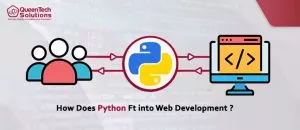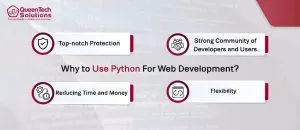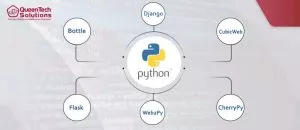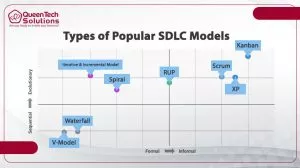- August 16, 2023
- Posted by: Jacky Melek
- Categories: Software Development, Website Development
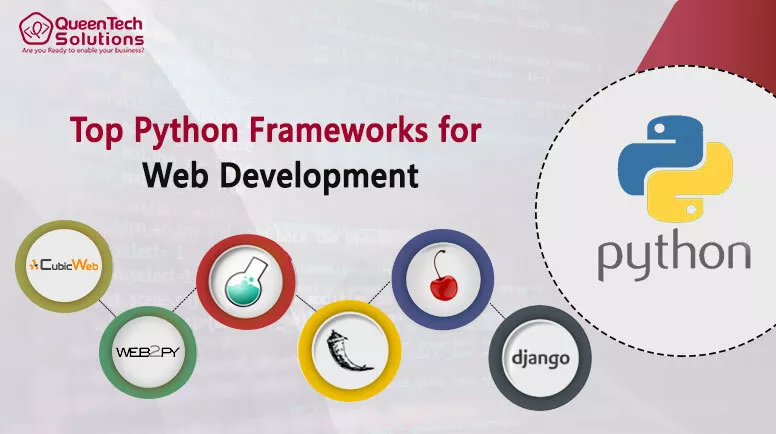
What Is Python Used For?
Python is a popular programming language that is widely used for various purposes due to its simplicity, readability, and extensive libraries. As a beginner’s guide, here are some common applications of Python:
- Web Development: Python is used to build dynamic websites and web applications. Frameworks like Django and Flask make it easier to create and manage web projects.
- Data Analysis and Visualization: Python, along with libraries like NumPy, pandas, and Matplotlib, is widely used for data manipulation, analysis, and visualization. It’s a popular choice in data science and analytics.
- Machine Learning and Artificial Intelligence: Python’s extensive libraries like TensorFlow, PyTorch, and scikit-learn support the development of machine learning models and AI applications, such as image recognition, natural language processing, and recommendation systems.
- Scientific Computing: Python is used in scientific research and engineering to solve complex mathematical problems, conduct simulations, and analyze experimental data.
- Game Development: While not as common as some other languages, Python can be used to create simple games and prototypes. Libraries like Pygame provide tools for game development.
- Desktop Applications: Python can be used to build graphical user friendly for interface . The tkinter library comes with Python and allows you to create basic desktop applications.
- Network Programming: Python’s socket library enables developers to create networking applications like servers and clients for various protocols.
- Internet of Things (IoT): Python can be used to control and manage IoT devices, as it supports various communication protocols and has libraries for interfacing with hardware.
- Educational Purposes: Python’s easy syntax and beginner-friendly nature make it a great choice for teaching programming concepts to beginners.
Why are Python Frameworks Significant for Web Development?
- Top-notch Protection: Python frameworks often come with built-in security features and practices that help developers create more secure web applications. These frameworks address common security vulnerabilities, making it easier for developers to build applications that are less prone to attacks and breaches.
- Strong Community of Developers and Users: The Python web development ecosystem has a thriving community of developers and users. This community contributes to the development of frameworks, shares best practices, provides support, and creates a pool of resources like tutorials, documentation, and plugins.
This support network can greatly aid developers in overcoming challenges and learning new techniques. - Reducing Time and Money Spent on Development: Python frameworks provide a set of tools, libraries, and pre-built components that accelerate the development process. This can lead to significant time and cost savings. Developers don’t need to reinvent the wheel for common tasks, allowing them to focus more on the unique features of their applications.
- Flexibility: Many Python web framework offer a high degree of flexibility. They allow developers to choose the components they need and tailor the mobile app to specific requirements. This flexibility ensures that developers can create applications that are not only functional but also aligned with their project’s unique needs.
- Scalability: While not explicitly mentioned in your list, scalability is often a significant benefit of using Python frameworks. These frameworks provide architectural patterns and practices that make it easier to scale applications as user demand increases. This scalability is crucial for web applications that need to handle a growing number of users and data.
Types of Python Frameworks for Web Development
Python frameworks can be categorized into three main types, Let’s explore the meaning of each type and features include:
Full-Stack Framework:
A full-stack framework encompasses both front-end (client-side) and back-end (server-side) development components. It offers a comprehensive solution for building web applications that handle all aspects of development, from user interfaces to databases. These frameworks are versatile and can be used for various types of applications.
Micro-Framework:
Micro-frameworks are lightweight and streamlined frameworks that provide the essentials for web development without the extensive features found in full-stack frameworks. They are suitable for creating simple to moderately complex applications where customization is important. Micro-frameworks often omit advanced functionalities like authentication, authorization, and complex data handling.
Asynchronous Framework:
Asynchronous frameworks are built on top of the asyncio library, allowing developers to write code that can efficiently manage concurrent tasks. This type of framework is particularly useful for applications that need to handle multiple tasks simultaneously, such as handling numerous connections or performing I/O-bound operations without blocking the execution flow.
One of The Best Program for Web Development in Python
Django:
Django is a high-level, open-source web framework written in Python. It is designed to enable developers to build web applications quickly and efficiently by providing a wide range of tools, libraries, and features. Django follows the “batteries-included” philosophy, offering many built-in functionalities that cover various aspects of web development.
CherryPy:
CherryPy is a lightweight and minimalistic web framework for Python. It aims to provide a simple and flexible way to develop web applications by focusing on the core components necessary for building web services. CherryPy allows developers to create web applications with minimal overhead while offering the freedom to customize and extend as needed.
Flask:
Flask is a micro-framework for web development in Python. It is designed to be simple, lightweight, and flexible, providing the essential tools needed to build web applications without imposing rigid structures. Flask is often described as a “micro” framework because it offers only the core components, allowing developers to choose and integrate additional functionalities as required.
Pyramid:
Pyramid is a full-stack web framework for Python that focuses on flexibility, modularity, and ease of use. It is designed to cater to a wide range of projects, from small applications to complex and large-scale systems. Pyramid follows a “use what you need” philosophy, allowing developers to choose and integrate the components that suit their project’s requirements.
Bottle:
Bottle is a micro-framework for web development in Python that aims to be simple, lightweight, and self-contained. It is designed for building small to medium-sized web applications quickly and easily. Bottle is known for its minimalistic approach and the fact that it is contained within a single Python module, making it very easy to learn & integrate into projects.
Web2Py:
Web2Py is a full-stack web framework for Python that aims to provide an all-in-one solution for developing web applications. It emphasizes ease of use, rapid development, and security. Web2Py is designed to simplify the process and provide a comprehensive development environment for building web applications from start to finish.
CubicWeb:
CubicWeb is a semantic web application framework for Python that focuses on data modelling, semantic relationships, and knowledge representation. It is designed for building complex applications that require structured data representation and manipulation. CubicWeb enables developers to create applications that leverage semantic web development tools for organizing and querying data.
Conclusion
At QTS, we’ve got a skilled team ready to assist organizations in building a websites, web apps and web design software. We’re also pros at giving advice about our software services. So, if your business needs more people, a smart tech solution, or some guidance, we’re here to support you.
Contact our experts to find out more about the top Python developers frameworks. This will help you pick the best one to improve your company’s product development and launch your great app today!

